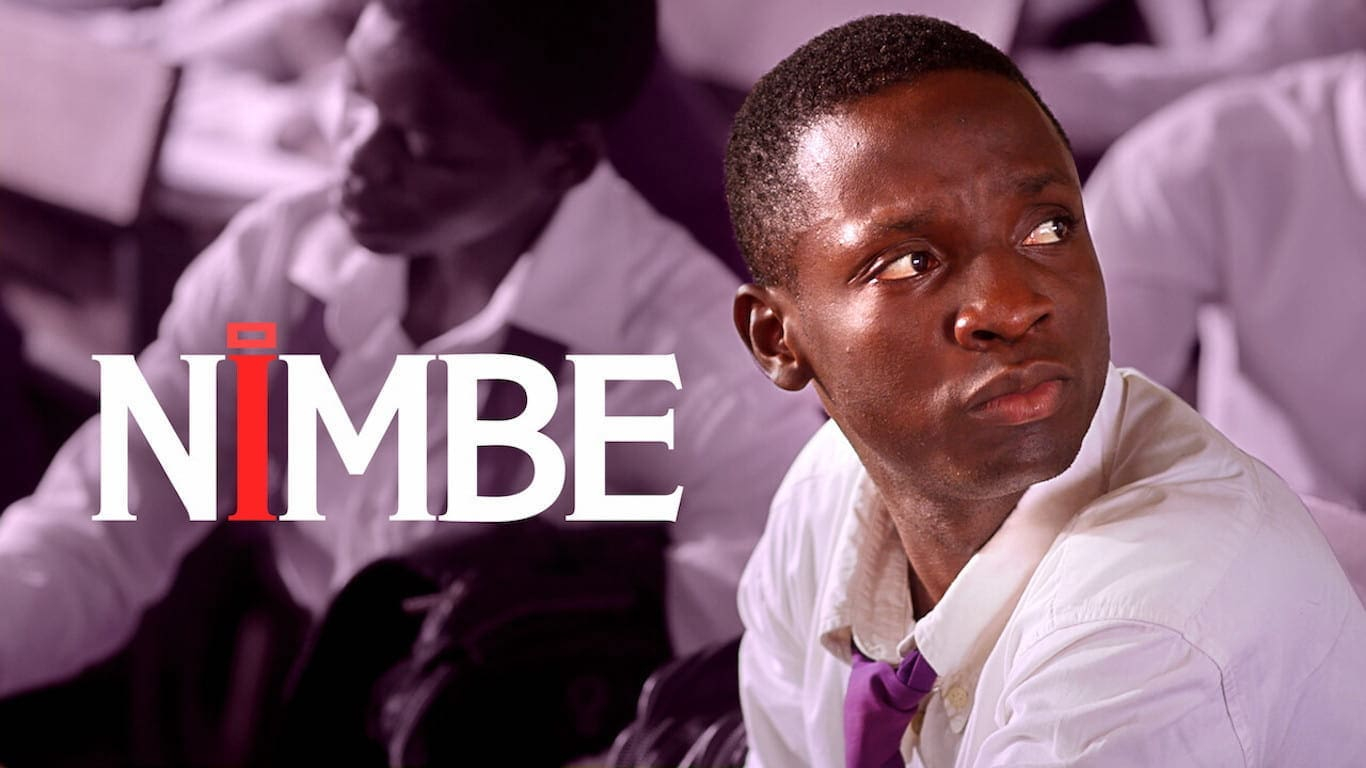Nimbe is an anti-narcotic frontier film recently released on Netfilx. It exposes the country's moral and social anarchy.
In 2019, when the Nigerian Afro-pop artist, Olamide Adedeji, released his song ‘Science Students’, it generated a galling public reception and attracted the State’s legislation: the video was banned. Whatever position one takes, there is an obvious point that the narcotic surge in the last decade is a symptom of social failure of postcolonial Nigeria, where more than 14 million youths are engrossed in all sorts of antisocial behaviour. Olamide’s ‘science students’ are protagonists of this story — alchemists who mix substances such as tramadol and codeine, and repurpose harmful items such as glue and sewage as psychoactive stimulants.
Then there is the perennial problem of a large population of high school students who are drivers of this menace. This is the locus of Tope Alake’s recent didactic film, Nimbe. Alake has gained visibility beyond Nollywood with films such as Picture Perfect (2017) and Stormy Hearts (2017), which explore urban and emotional politics. Nimbe, Alake’s new offering, is not only timely but also a movie with a message of social relevance. It brings us up close to one of the many challenges faced by Nigeria and its people.
Nimbe opens with an overture that shows the protagonist, Oluwanimbe (Chimezie Imo – debutant in the Nigerian Nollywood scene) being taunted by a group of back benchers, led by the lanky Benji, in his class. Benji rolls up ground chalk into the form of cigar and stealthily places it between Nimbe’s lips, while he is asleep. This trick is followed by a jeering chorus from Benji’s minions and other sections of the class. Nimbe is enraged, as he wakes up from inhaling the chalk, and insists that Benji should apologise. His placidity has been taken for granted for a long time, and this action reaches psychological precipice as Benji reminds him of the ludicrous correlate of his name, Nimbecile. Oblivious of the person he has become, he astounds the class by taking out a pistol and shooting Benji in the forehead at a close range. We are then led into the sequence of the full story.
Born into a humble family, precocious Nimbe is subject to the whims of his ever-haggling father, Bayo Oguntade (Odunlade Adekola), and his mother, Uduak Oguntade (Toyin Abraham). Nimbe’s father is a figure who associates masculinity with violence. Under internal pressure from home and being a perpetual target of his classmates, Nimbe finds a saviour in Ralph. Ralph comes from another world, but he and Nimbe strike a chord, having similar experiences of bad parenting. Ralph introduces Nimbe to the underworld of drug dealing, where AK (Kelechi Udegbe), the leader of the drug cartel, maintains his status and oversees the production of SLAK – a cocktail of white substance.
The irony of Alake’s Nimbe is rooted in the toponym ‘Paradise’ where addicts of AK’s residence luxuriate. It is through this location that the film generates its social message and explores the impact of drug abuse on Nigerian society — a place that is antithetical to the notion of paradise. For example, when AK finds out that Lemon, one of his drug mules, has impregnated his sibling, Peju, he shoots him at a close range and leaves his body to rot. In another instance, he shoots and kills one of his workers because he feels he is an infiltrator, also leaving his body to decompose on the railway track.
Watching Nimbe, one recalls Achille Mbembe’s On the Postcolony where he describes how power and instruments of coercion are not only controlled by the State and its apparatus, but also by individuals capable of goading public violence, and who are therefore feared by the community. AK creates his own government where he serves as a Leviathan beyond the rule of law, appropriating a livelihood for himself and all the people in his network through drug trafficking. He has ‘hailed’ the police, to loan Althusser’s term, but when this hailing fails, he resorts to violence.
Outside the thematic premise of the film, the characterisation of Uduak, with accented pidgin of Okon (Imeh Bishop Umoh), gives her character little or no originality and this inconsistent phonic ploy is better ignored while watching the film. This might be a jocular nod but it is not convincing. Alake’s direction of extras on set leaves something to be desired, such as the amateurish cackle of the boy staring into the camera in the fight scene between Nimbe and Benji at the beginning of the film. Although drug abuse is a general problem across all of Nigerian society, the film suggests that it is a problem in the northern population of the country, and so adds a questionable ethnic angle to the issue. Globally, the stereotype of Nigerian identity portrays the country as portal for drug trafficking, and Nimbe plays into this misperception, rather than working against it. In addition, the fight against drug cartels could have been portrayed from the perspective of the National Drug Law Enforcement Agency, who lead the fight against drug abuse in Nigeria, but are completely missing in the film.
Putting these setbacks aside, Alake’s film raises a range of moral questions, such as the mental cost and other related medical maladies that drug abuse causes for users. Alake’s imaginative drive exposes the social failures of our time and starkly reveals the dangers faced by Nigerian society under capitalism and crass material pursuit.
In the end, Nimbe seamlessly aggregates themes such as family, abortion, domestic abuse, rape, envy, friendship and toxic masculinity within the overarching story of drug abuse. The film ends on a defeatist note in which the protagonist personality is depicted as irredeemable. One cannot but conclude that there is an urgent need to rescue Nigerian society from impending moral and social anarchy.
Olajide Salawu lives in Nigeria. His works have appeared in Third Text, The Republic, The Mantle, Popula among other venues.


